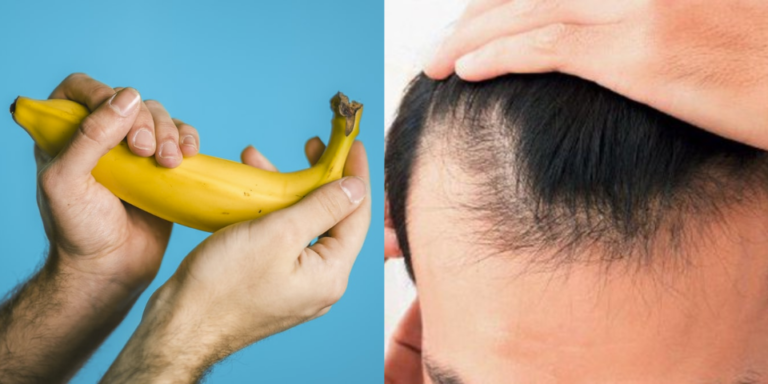Erectile Dysfunction in Young Men: Causes and Solutions

Understanding Erectile Dysfunction in Young Men
Erectile dysfunction (ED), also known as impotence, is a condition that affects millions of men worldwide. Contrary to popular belief, it is not solely an issue that affects older individuals. In recent years, there has been a growing recognition of the prevalence of erectile dysfunction among younger men.
While the exact numbers vary, studies have shown that the prevalence of ED in the age group of 20-39 years is between 2% and 9%. This may seem low compared to the higher rates in older age groups, but it is still a significant number when considering the impact it can have on a young man’s self-esteem, relationships, and overall quality of life.
Understanding the causes of erectile dysfunction in young men is crucial in order to provide appropriate treatment and support. While there can be physical factors such as hormonal imbalances or underlying medical conditions, it is important to recognize that psychological factors can also play a significant role. Stress, anxiety, depression, and performance-related pressure can all contribute to erectile difficulties in younger individuals. Furthermore, relationship issues, communication problems, and a lack of emotional intimacy can also impact a man’s ability to maintain an erection.
The Prevalence of Erectile Dysfunction among Younger Individuals

Erectile dysfunction (ED) is commonly associated with older men, but it is also a significant issue among younger individuals. In recent years, the prevalence of ED among younger men has been on the rise, causing concern and distress. According to a study published in the Journal of Sexual Medicine, the prevalence of ED among men aged 18 to 25 is approximately 10%, highlighting the importance of addressing this issue among younger individuals.
So, what could be causing this increase in ED among younger men? One factor that has been identified is the rise in psychological factors contributing to ED. Stress, anxiety, and depression can all play a role in the development of ED, creating a mental barrier that inhibits sexual function. Furthermore, relationship issues, such as conflicts and lack of emotional connection, can also contribute to ED in younger individuals. Understanding and addressing these psychological factors is crucial in managing and treating ED among younger men.
Psychological Factors Contributing to Erectile Dysfunction in Young Men
Psychological factors can play a significant role in the development of erectile dysfunction (ED) among younger men. While physical causes such as medical conditions or medications are often considered the primary culprits, it’s crucial not to overlook the impact that mental and emotional well-being can have on sexual health. Stress, anxiety, depression, and performance anxiety are just a few psychological factors that can contribute to ED in young men.
One study conducted by the Journal of Sexual Medicine examined the relationship between psychological factors and ED in men under the age of 40. The study found that 54% of participants who experienced erectile issues had high levels of stress, suggesting a strong link between psychological distress and sexual dysfunction. Additionally, performance anxiety, often fueled by societal pressures and unrealistic expectations, can further exacerbate ED in younger individuals.
It’s important to remember that experiencing occasional difficulties with erections is normal and should not immediately be cause for concern. However, if these issues persist and begin to affect a man’s self-esteem, relationships, or overall well-being, it may be worthwhile to explore the potential psychological factors contributing to the problem. Seeking support from a professional, such as a therapist or psychologist, can provide valuable insights and guidance in managing and overcoming these psychological challenges.
Relationship Issues and Erectile Dysfunction: Exploring the Connection
Relationship issues can have a significant impact on a man’s ability to achieve and maintain an erection, leading to erectile dysfunction (ED). When there is tension, conflict, or a lack of emotional connection within a relationship, it can create stress and anxiety, which are common psychological factors contributing to ED in young men.
Studies have shown that relationship dissatisfaction and communication problems are strongly associated with ED. A research study published in The Journal of Sexual Medicine found that young men who reported lower relationship satisfaction were more likely to experience ED. The study also highlighted the importance of open and supportive communication between partners, as it can help reduce anxiety and improve sexual function.
In addition to emotional factors, relationship issues can also lead to lifestyle changes that negatively impact erectile function. For example, when there is tension or conflict in a relationship, it may result in decreased intimacy and sexual activity, which can contribute to ED. Furthermore, relationship issues can sometimes lead to unhealthy behaviors such as substance abuse or excessive alcohol consumption, both of which can directly impair erectile function.
It is important to address and resolve relationship issues to improve overall sexual health and well-being. Couples therapy or counseling can be beneficial in helping partners communicate effectively, enhance emotional connection, and manage conflict. Open and honest conversations about sexual desires and concerns can also help create a supportive and understanding environment within the relationship. By working together to resolve relationship issues, couples can not only strengthen their emotional bond but also improve sexual satisfaction and reduce the risk of ED.
Lifestyle and Habits: How They Impact Erectile Function in Younger Men

Lifestyle and habits can significantly impact erectile function in younger men. Poor lifestyle choices such as a sedentary lifestyle, unhealthy diet, and excessive alcohol consumption can lead to various health issues, including erectile dysfunction (ED). Studies have shown that men who engage in regular physical activity, maintain a healthy weight, and follow a balanced diet are less likely to experience ED compared to those with unhealthy habits. Incorporating nutritious foods like fruits, vegetables, whole grains, and lean proteins into one’s diet can improve overall health and enhance sexual function.
Additionally, smoking has been linked to an increased risk of ED in younger individuals. The harmful chemicals in cigarettes can damage blood vessels and interfere with the normal blood flow needed for a healthy erection. Research suggests that quitting smoking can significantly improve erectile function and overall sexual satisfaction. Seeking support from healthcare professionals or joining smoking cessation programs can greatly enhance the chances of successfully quitting and improving erectile function.
Making lifestyle changes can be challenging, but the benefits are worth it. By adopting healthy habits, such as regular exercise, a nutritious diet, and quitting smoking, young men can optimize their erectile function and overall sexual well-being. It’s essential to remember that every individual is unique, and seeking guidance from healthcare professionals can provide personalized advice and support in improving lifestyle habits for better erectile function.
Substance Abuse and Erectile Dysfunction in Young Men

Substance abuse, specifically the misuse of drugs and alcohol, can have detrimental effects on various aspects of a person’s health. One area that can be significantly impacted is sexual function, particularly for young men. Substance abuse and erectile dysfunction (ED) have been found to have a strong correlation, with numerous studies highlighting the negative effects of substance misuse on sexual performance.
Drug and alcohol abuse can interfere with the intricate physiological processes that lead to an erection. For instance, alcohol is a depressant that can impair nerve signals and slow down blood flow, both essential for achieving and sustaining an erection. Additionally, certain drugs, such as cocaine and opioids, can directly impair sexual function by interfering with the hormone production and neural pathways associated with arousal and erectile response.
According to a study published in the Journal of Sexual Medicine, substance abuse was identified as a significant risk factor for erectile dysfunction among young men. The researchers found that men who reported substance abuse had a higher prevalence of ED compared to those who did not engage in such behaviors. Additionally, the severity of erectile dysfunction was greater in those with substance abuse issues.
These findings serve as a stark reminder of the potential consequences of substance abuse on sexual health. For young men struggling with both substance abuse and erectile dysfunction, seeking professional help is crucial. It is essential to address and manage substance misuse while also exploring suitable treatment options for erectile dysfunction, such as counseling, therapy, and medication interventions.
Remember, if you or someone you know is dealing with substance abuse and experiencing symptoms of erectile dysfunction, reaching out to a healthcare professional is the first step towards finding effective solutions and improving overall well-being.
The Role of Stress and Anxiety in Erectile Dysfunction
Stress and anxiety can have a significant impact on a man’s ability to achieve and maintain an erection, ultimately leading to erectile dysfunction (ED). When the body is under stress, the release of stress hormones such as cortisol can inhibit the production of key sex hormones like testosterone, which play a vital role in sexual function. Additionally, persistent anxiety can cause increased muscle tension, including those in the genital area, making it difficult for blood to flow properly and leading to difficulties in achieving and maintaining an erection.
Research has shown a clear correlation between psychological factors, such as stress and anxiety, and the development of ED in younger men. In a study published in the Journal of Sexual Medicine, it was found that men who reported higher levels of stress and anxiety were more likely to experience ED symptoms. Another study published in the International Journal of Impotence Research highlighted that anxiety-related disorders, such as generalized anxiety disorder and panic disorder, were significantly associated with an increased risk of ED.
It is important to note that while stress and anxiety can contribute to ED, they can also be a result of the condition. The inability to achieve or maintain an erection can cause feelings of inadequacy, performance anxiety, and stress, creating a vicious cycle that perpetuates the problem. Addressing both the psychological and physiological aspects of ED is crucial for effective treatment and management.
Medical Conditions and Medications: Possible Causes of Erectile Dysfunction
Erectile dysfunction (ED) can be caused by a variety of medical conditions and medications. Certain health conditions that affect blood flow, nerve function, or hormone levels can contribute to the development of ED. For example, cardiovascular diseases such as hypertension, atherosclerosis, and diabetes can damage blood vessels and impair circulation, making it difficult for blood to flow to the penis and achieve a firm erection. Additionally, hormonal imbalances, such as low testosterone levels, can also play a role in erectile dysfunction.
Medications that are commonly prescribed to treat certain health conditions can also have unintended effects on sexual function. Some medications used to manage high blood pressure, depression, anxiety, and prostate issues have been associated with erectile dysfunction. These medications can alter hormone levels, affect nerve signals, or constrict blood vessels, making it difficult to achieve or maintain an erection. If you suspect that your medications are causing or worsening your erectile dysfunction, it’s important to consult with your healthcare provider to explore alternative options or adjustments to your treatment plan.
Hormonal Imbalances and Erectile Dysfunction in Young Men
Erectile dysfunction (ED) is a common condition that can affect men of all ages, including young men. While it is often attributed to psychological factors, hormonal imbalances can also play a significant role in causing this sexual dysfunction. Hormones are chemical messengers in the body that regulate various bodily functions, including sexual health.
Testosterone, the primary male sex hormone, is responsible for maintaining sexual desire and erectile function. When there is a hormonal imbalance, particularly a decrease in testosterone levels, it can lead to diminished sexual desire and difficulties in achieving and maintaining an erection. Research has shown that hormonal imbalances can contribute to ED in young men, making it essential to address these factors when diagnosing and treating the condition.
The Impact of Obesity and Sedentary Lifestyle on Erectile Function

Obesity and a sedentary lifestyle have been known to have a significant impact on various aspects of health, including sexual function. When it comes to erectile dysfunction (ED), these factors can play a crucial role in its development among younger men.
Multiple studies have shown a strong association between obesity and ED. According to research published in the Journal of Sexual Medicine, obesity increases the risk of developing ED by nearly 30%. This is believed to be due to a variety of factors, including hormonal changes, reduced blood flow, and psychological factors such as poor body image and low self-esteem.
In addition to obesity, a sedentary lifestyle can also contribute to erectile dysfunction. Engaging in regular physical activity has been shown to have numerous benefits for overall health, including improved cardiovascular function. By contrast, a sedentary lifestyle can lead to weight gain, poor circulation, and increased levels of oxidative stress, all of which can negatively impact erectile function.
It is important to note that obesity and a sedentary lifestyle are not the sole causes of erectile dysfunction in young men, and there may be other contributing factors at play. However, addressing these lifestyle factors can go a long way in improving overall sexual health.
The Link between Smoking and Erectile Dysfunction in Younger Individuals
Smoking has long been associated with negative health effects, including an increased risk of lung cancer and heart disease. However, recent studies have also found a strong link between smoking and erectile dysfunction in younger individuals. While it is common knowledge that smoking can impair blood flow and damage blood vessels, the impact on erectile function is often overlooked.

Research has shown that smoking can lead to a decrease in nitric oxide production, a molecule that plays a crucial role in achieving and maintaining an erection. Nitric oxide helps to relax and dilate blood vessels in the penis, allowing for increased blood flow during sexual arousal. However, the toxic chemicals present in cigarette smoke can damage the lining of the blood vessels, impairing the release of nitric oxide and diminishing its effect. This can result in difficulties in achieving or sustaining an erection, leading to erectile dysfunction.
Additionally, smoking has been linked to hormonal imbalances that can further contribute to erectile dysfunction. Studies have found that smoking can lead to decreased testosterone levels in men, which can impact sexual desire and performance. Testosterone plays a vital role in male sexual health, and any disruption in its levels can have a negative effect on erectile function.
The impact of smoking on erectile dysfunction is significant, and quitting smoking can greatly improve sexual health. Not only does quitting smoking help to restore cardiovascular health and improve blood flow, but it can also reverse some of the damage caused to the blood vessels and hormone levels. By taking the necessary steps to quit smoking, younger individuals can significantly reduce their risk of developing or worsening erectile dysfunction.
Potential Solutions: Lifestyle Changes to Improve Erectile Function
Making certain lifestyle changes can be an effective way to improve erectile function in younger men. By adopting healthier habits, individuals can address potential underlying causes and enhance their overall sexual health. Here are a few lifestyle changes that may help improve erectile function:
1. Maintain a balanced diet: Eating a nutritious diet that includes fruits, vegetables, whole grains, lean proteins, and healthy fats can positively impact erectile function. Certain nutrients, such as zinc, vitamin D, and antioxidants, have been linked to sexual health.
2. Engage in regular exercise: Physical activity can boost blood circulation, improve cardiovascular health, and promote hormone balance, all of which are essential for healthy erectile function. Incorporating aerobic exercises, strength training, and pelvic floor exercises can be beneficial.
3. Manage stress levels: High levels of stress can contribute to erectile dysfunction. Practicing stress management techniques, such as deep breathing exercises, meditation, yoga, or engaging in hobbies and activities that provide relaxation can help reduce stress and improve sexual health.
Remember, it is crucial to consult with a healthcare professional or specialist who can provide personalized guidance and support when making lifestyle changes. Every individual is unique, and the underlying causes of erectile dysfunction may differ. Therefore, seeking professional advice can help determine the most appropriate strategies for improving erectile function in specific cases.
Counseling and Therapy: Addressing Psychological Factors for ED Treatment
Counseling and therapy are crucial components in addressing the psychological factors that contribute to erectile dysfunction (ED) in young men. It is essential to recognize that ED can be caused or influenced by various psychological issues, including stress, anxiety, depression, performance anxiety, relationship problems, and body image concerns.
Therapeutic interventions, such as cognitive-behavioral therapy (CBT) and talk therapy, aim to explore and address these underlying psychological factors. CBT, for instance, focuses on identifying and modifying negative thought patterns and behaviors that may contribute to ED. By working with a trained therapist, individuals can learn healthier coping mechanisms and develop a more positive mindset, which can have a positive impact on their sexual functioning.
Moreover, counseling and therapy provide a safe space for individuals to discuss their concerns and fears related to ED. It allows them to express their emotions, better understand the root causes of their condition, and explore potential solutions. The therapist can guide the individual in developing healthier communication and intimacy skills, enhancing self-confidence, and improving overall well-being. While medication and medical interventions may be necessary in some cases, addressing the psychological factors through counseling and therapy can provide lasting benefits and improve the individual’s overall quality of life.
Medications and Medical Interventions for Erectile Dysfunction in Younger Men
Medications and medical interventions can be effective treatment options for younger men experiencing erectile dysfunction (ED). The choice of medication or intervention depends on the underlying cause of the condition and the overall health of the individual. It is important for men to consult with a healthcare professional to determine the most suitable approach for their specific situation.
One common medication used to treat ED is phosphodiesterase type 5 (PDE5) inhibitors, such as sildenafil (Viagra), tadalafil (Cialis), and vardenafil (Levitra). These medications work by increasing blood flow to the penis, helping to achieve and maintain an erection. PDE5 inhibitors have been shown to be effective in younger men, with studies reporting success rates between 70-80% in this age group. However, it is worth noting that these medications may not be suitable for everyone, especially those with certain medical conditions or taking certain medications.
In addition to oral medications, other medical interventions may be recommended for younger men with ED. One option is the use of a vacuum erection device (VED), which involves placing a cylindrical device over the penis to create a vacuum, drawing blood into the penis and causing an erection. VEDs can be a useful non-invasive option, particularly for individuals who are not able or do not wish to take medications. Another option is penile injections, which involve injecting a medication directly into the side of the penis to stimulate an erection. This method may be recommended for individuals who do not respond to oral medications or prefer a more immediate effect.
Overall, medications and medical interventions are valuable tools in the management of erectile dysfunction in younger men. However, it is crucial for individuals to consult with a healthcare professional to discuss their options and determine the most suitable approach for their specific needs. It is important to note that medications and interventions should always be used under medical supervision to ensure safety and effectiveness.
Natural Remedies and Alternative Treatments for Erectile Dysfunction
There are a variety of natural remedies and alternative treatments that may help with erectile dysfunction (ED) in younger men. While these options may not be as well-studied or regulated as pharmaceutical medications, they can still provide some individuals with relief and improve their sexual function.
One potential natural remedy for ED is the use of select herbs and supplements. For example, a study published in the Journal of Sexual Medicine found that the herb ginkgo biloba may have positive effects on sexual function in men with ED. Another study suggested that the amino acid L-arginine may help improve erectile function by increasing nitric oxide production in the body.
In addition to herbal remedies, lifestyle changes can also play a significant role in managing ED. Regular exercise, maintaining a healthy weight, and avoiding excessive alcohol consumption have all been associated with improved erectile function. Furthermore, stress reduction techniques such as meditation or counseling may help alleviate the psychological factors that can contribute to ED.
It’s important to keep in mind that natural remedies and alternative treatments may not work for everyone, and consulting with a healthcare professional is always recommended. They can provide personalized guidance and ensure that any potential treatments are safe and appropriate for your specific situation.
Can erectile dysfunction affect men of all ages?
Yes, erectile dysfunction can affect men of all ages, including young men.
Are there any natural remedies or alternative treatments for erectile dysfunction?
Yes, there are several natural remedies and alternative treatments for erectile dysfunction. These may include lifestyle changes, such as exercise and a healthy diet, as well as herbal supplements or acupuncture.
Can psychological factors contribute to erectile dysfunction in young men?
Yes, psychological factors can contribute to erectile dysfunction in young men. Stress, anxiety, depression, and relationship issues can all play a role in causing or exacerbating erectile dysfunction.
Is substance abuse linked to erectile dysfunction in young men?
Yes, substance abuse, such as drug or alcohol addiction, can contribute to erectile dysfunction in young men.
Can hormonal imbalances cause erectile dysfunction in young men?
Yes, hormonal imbalances, such as low testosterone levels, can cause erectile dysfunction in young men.
Can obesity and a sedentary lifestyle impact erectile function in younger men?
Yes, obesity and a sedentary lifestyle can have a negative impact on erectile function in younger men.
Does smoking have a link to erectile dysfunction in younger individuals?
Yes, smoking has been linked to erectile dysfunction in younger individuals.
What are some potential lifestyle changes that can improve erectile function?
Some potential lifestyle changes that can improve erectile function include regular exercise, maintaining a healthy weight, reducing stress, and quitting smoking.
Can counseling and therapy help in treating erectile dysfunction?
Yes, counseling and therapy can be beneficial in addressing psychological factors and helping to treat erectile dysfunction.
Are there any medications or medical interventions available for erectile dysfunction in younger men?
Yes, there are medications and medical interventions available for erectile dysfunction in younger men. These may include prescription medications, vacuum erection devices, or even surgical options.
Are there any natural remedies or alternative treatments not mentioned in the article?
The article does not mention specific natural remedies or alternative treatments for erectile dysfunction. However, it is always advisable to consult with a healthcare professional before trying any new remedies or treatments.







